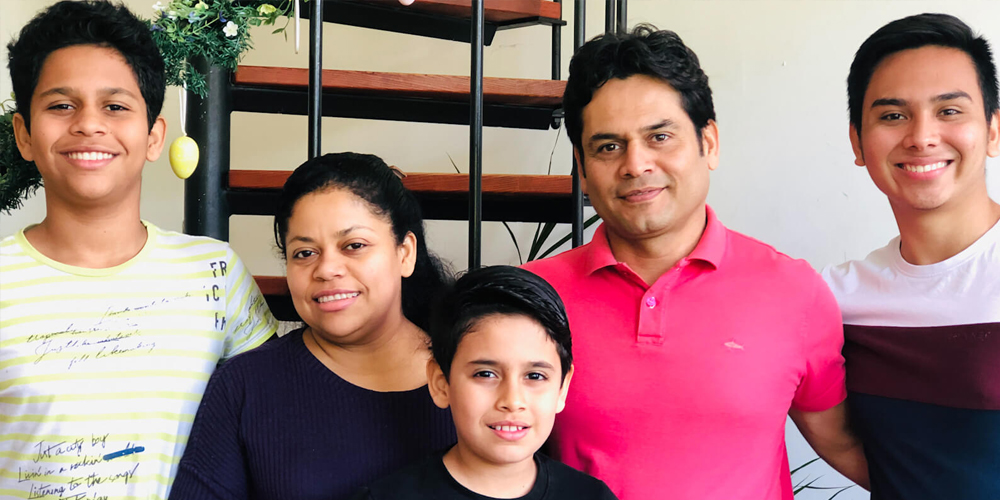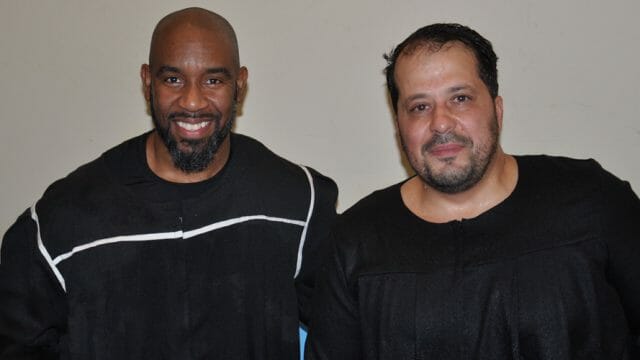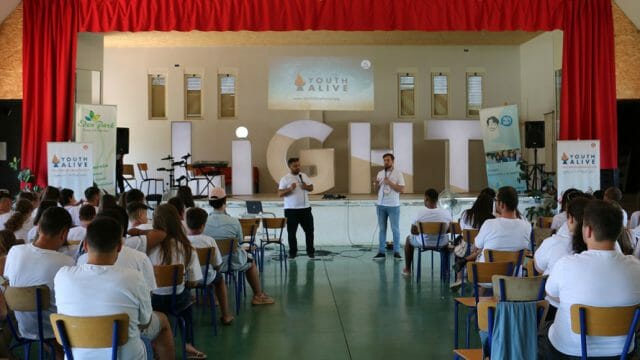Adventist agency is supporting 42,000 people across Europe during the lockdown.

More than six months have passed since Fredy escaped threats and uncertainty in his homeland of Colombia. Together with his wife and three children, he found a safe refuge in Belgium.
Then came the virus and lockdown.
Fredy and his family were forced to stay inside their shelter but were taken care of by a kind member of the local community in Lint. To provide for his family, Fredy started baking and selling bread.
“One day, the local Adventist pastor came to buy some bread and brought me the good news: we were going to get support from ADRA,” Fredy said, referencing the Adventist Development and Relief Agency. “For us, it was the hand of God; I can’t express it any other way. ADRA’s help came when we needed it most.”
This was an answer to prayer for Fredy and his family. “We had nothing and could only pray to God. He replied and offered help through ADRA,” he remembers with tears of joy in his eyes.
Milena, his wife, adds, “It was a blessing because, thanks to this support, we could move forward and continue with our small business of making and selling bread.”
Fredy and Milena are two of more than 42,000 people whose lives have been supported by ADRA during the current COVID-19 pandemic in Europe. ADRA exists for moments like this: to bring hope, relief, and innovative solutions to complex situations and ‘to serve so all may live as God intended.’
More than 17,000 ADRA staff and volunteers are serving on the frontlines across Europe. ADRA teams provide shelter and food for the homeless, support health care and mental health services, support education, and help vulnerable seniors, youth, children, and families.
And this happens far beyond the borders of Europe. As both a global grassroots network and a faith-based organization, ADRA is active locally and on an international scale. Its development and humanitarian efforts have always been closely connected with local communities, accelerating long-lasting and sustainable solutions.
Support on the European Continent
ADRA’s presence in Europe includes 17 country offices and another six country offices that provided humanitarian support and are either self-supported or receive government funds.
The total value of projects for almost half a million euros (about US$560,000) is providing support to around 14,000 households or 42,000 people. Humanitarian assistance has been offered to people since the beginning of March 2020 and will continue until the end of the summer.
Main areas of activity include food and hygiene kits for homeless or vulnerable persons and families, mental health support, and support for virtual schooling and online learning. ADRA’s help also provides construction of testing centers for hospitals plus protection for infection departments and production and delivery of textile masks.
ADRA Europe Support for Developing Countries
European ADRA offices provide support far beyond the boundaries of Europe, mainly in developing countries. ADRA officers constantly seek new funding opportunities to protect the lives of people due to the COVID-19 outbreak.
Ten ADRA offices are supporting humanitarian activities in Africa, the Middle East, and Asia. Projects have been implemented in South Sudan, Yemen, Tanzania, Lebanon, Sudan, some West African countries, Sri Lanka, and Nepal. ADRA teams are actively negotiating with donors for additional funding as needs are growing every day, with people facing enormous challenges to ensure the survival of their families.
“ADRA believes that solidarity in action with developing countries is a positive moral decision and must include the ability to exercise a long-term vision,” states ADRA Europe CEO Joao Martins. He also sees the pandemic as a global solidarity test. “If we as an interconnected global family fail this solidarity test, consequences might leave deep wounds in countries left behind, paving the way for all manner of extremism and new crises — from pandemics to conflicts — that would threaten everyone,” he adds.
The world and its inhabitants are currently learning a painful lesson of a deeper understanding of human ties. We are all interconnected and are members of one human family. ADRA appeals for a mature and responsible global solidarity that puts people first.
The original version of this story was posted on the Trans-European Division news site.








